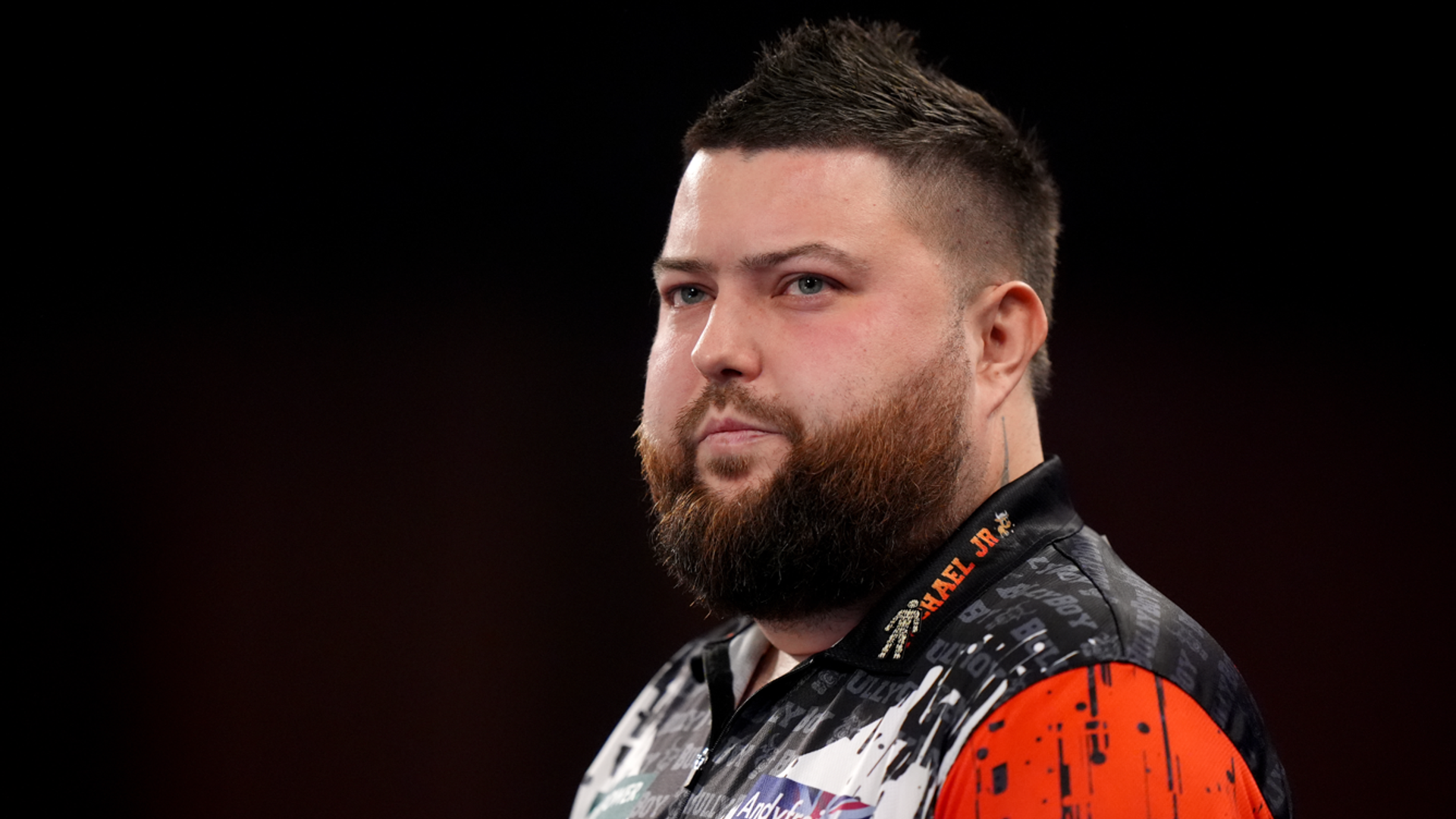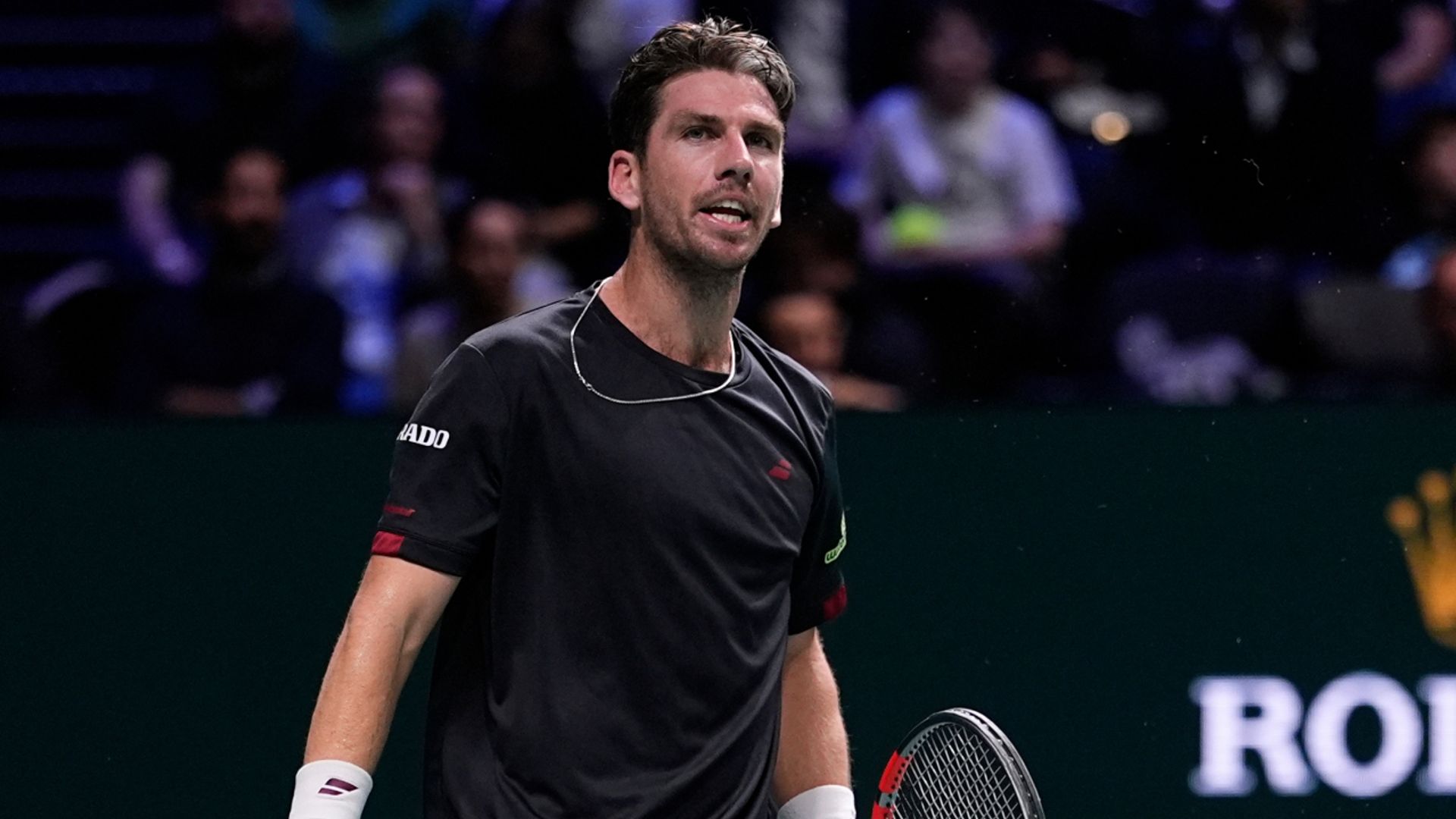Crying in Bed: Smith’s Struggles Reflect the Despair of Modern Athletes Facing Pressure to Succeed
The world of professional sports is no stranger to the pressures faced by athletes, a reality starkly highlighted by Michael Smith’s recent admission about his emotional struggles just days before qualifying for the Grand Slam of Darts. In an era where mental health is increasingly recognized as a critical issue, the juxtaposition of triumph and despair within the high-stakes environment of competitive sports has become a focal point for discussion.
Athletes like Smith, celebrated for their skills and achievements, often grapple with issues that go unnoticed by the public and media. The expectation to perform at peak levels while balancing personal lives and mental well-being can lead to significant emotional turmoil. Smith’s candid revelation of “crying in bed” serves as a powerful metaphor for the hidden battles many athletes face, drawing attention to the fragile human elements behind the sportsmanship.
The sporting world has been undergoing a profound transformation regarding how mental health is perceived and addressed. Athletes are now more open about their struggles, from anxiety to depression, often a result of the relentless pressure to succeed. The narrative surrounding mental health in sports has shifted from one of stigma to one of understanding and support, yet challenges remain.
In many sports, including darts, the cultural backdrop can exacerbate these issues. The competitive atmosphere creates a pressure cooker where performance is constantly evaluated, often leading to burnout. Smith’s emotional state, expressed through tears just days before an important competition, exemplifies the burdens many athletes carry. The public often sees only the success; the journey, fraught with self-doubt and personal challenges, remains largely invisible.
Moreover, the financial stakes in professional darts have risen dramatically, with substantial prize money drawing a larger audience and increasing competition. For athletes like Smith, the fear of failure can be paralyzing. The climbing standards mean that even slight mistakes can lead to significant consequences, both financial and reputational. This reality can weigh heavily on an athlete’s mind, leading to feelings of inadequacy and despair, particularly when they believe they are not meeting both their own expectations and those of their fans and sponsors.
The rise of social media has played a dual role in this dynamic. While it allows athletes to connect with fans and create personal narratives, it also opens the door to criticism and scrutiny. Any slip-up or perceived weakness can be amplified online, adding another layer of pressure. Smith’s tears and vulnerability, now public, could invite both support and harsh criticism, reflecting a broader conversation about the accessibility and humanity of athletes in the public eye.
This discussion also ties into a larger societal context, where mental health awareness is gaining traction across various fields. The parallels drawn between the pressures athletes face and those experienced by individuals in high-stress professions demonstrate a universal truth: the human condition is fraught with challenges, and the need for understanding and compassion transcends the realm of sports.
Smith’s situation raises essential questions about how the sporting community can better support athletes’ mental health. Organizations, sponsors, and peers must recognize the emotional toll that competition can take. Comprehensive support systems, including mental health resources and public conversations about vulnerability, can help create an environment where athletes feel safe to express their struggles without fear of judgment.
In the face of these challenges, sports figures like Smith can play a pivotal role in advocating for mental health awareness. By sharing their experiences, they can help destigmatize vulnerability, encouraging others to seek help and fostering a culture of openness. The commitment to mental well-being can transform not only individual lives but the entire landscape of competitive sports.
This evolution in the understanding of mental health supports the idea that athletes are more than just competitors; they are human beings facing unique struggles that deserve acknowledgment and compassion. Such recognition is not only essential for their well-being but could also lead to more authentic performances, as athletes who are mentally and emotionally healthy are better equipped to handle the demands of their sport.
As we reflect on Michael Smith’s journey, his openness about vulnerability should serve as a rallying point for change within the sporting community. Acknowledging the emotional toll of competition and fostering a supportive culture can lead to a more holistic view of athletic success, one that encompasses not just victories, but also the resilience born from overcoming personal battles. The story of Smith is a reminder that behind every athlete’s triumph lies a human story filled with struggle, courage, and potential for growth.




